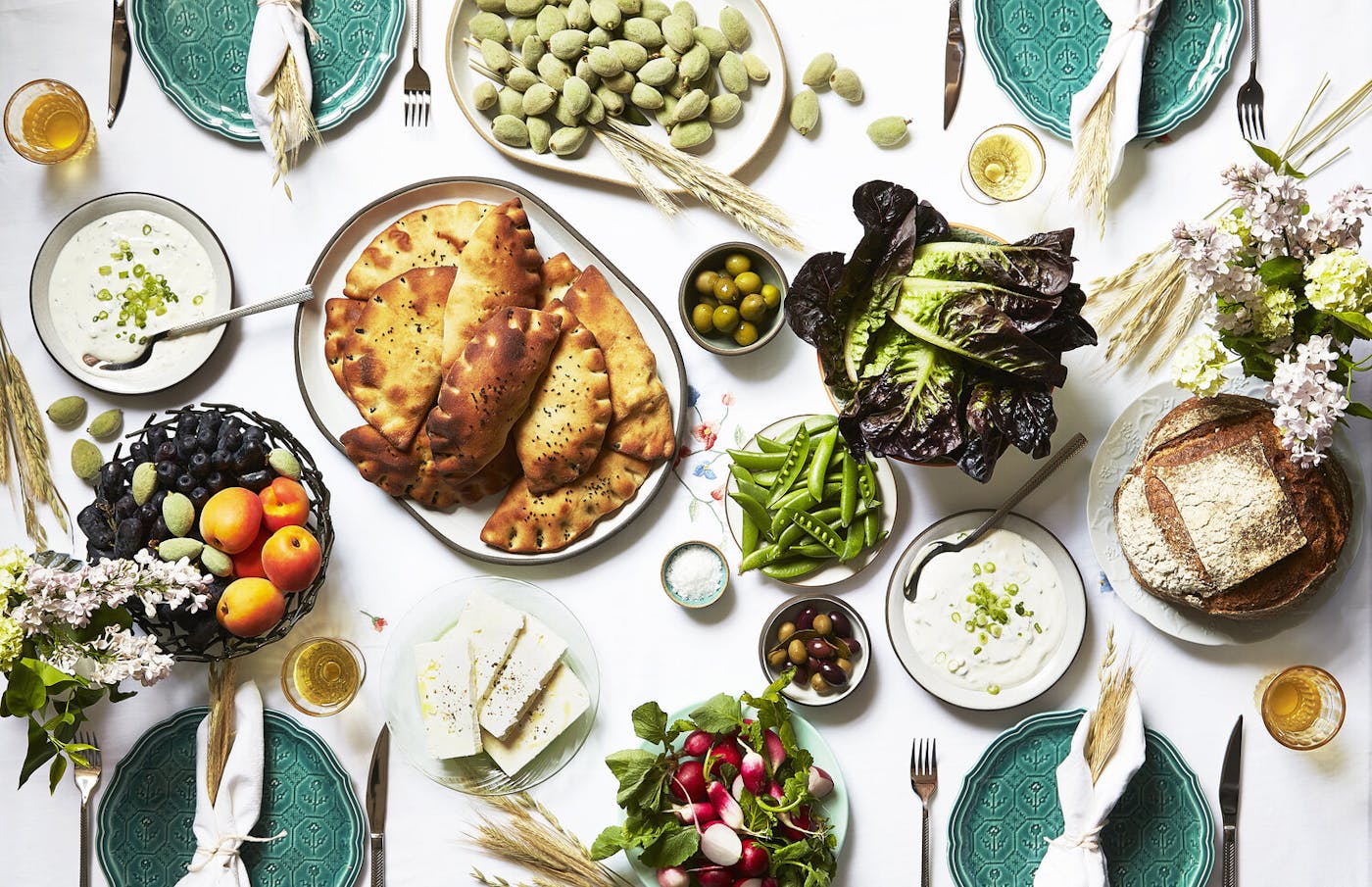Celebrating the springtime holiday Shavuot is “something I can’t forget,” says journalist-turned-chef Alon Hadar. When he was little, Kurdish women in his grandmother’s Jerusalem neighborhood Givat Shaul would gather and build a fire to prepare kadeh, a flatbread filled with cheese that honors the tradition of eating dairy-laden dishes on Shavuot. The kadeh “was the queen on the table,” says Alon, served alongside a rich yogurt sauce called zizik.
The women would lay a convex metal sphere called saj — fashioned from an old water heater — over the fire to cook on. Each woman would arrive with two large bowls: one with a cheese mixture and the other filled with dough that was unique to her home, says Alon. In turns, each woman would lay out the dough on the saj and fill it with cheese, forming a half moon shape. When it was fully cooked, it was placed in a basket and wrapped up to keep it warm.
The custom is one Alon’s grandmother Rachel and her family brought with them from Kurdistan when they moved to East Jerusalem in the late 1930s. They also brought recipes for hamusta, a bulgur dumpling soup made sour with lemon and bright with wild greens. A passion for fresh herbs and wild greens is shared across Alon’s family. His father, who emigrated from Kurdistan in 1951, would forage in the Judean hills as his family had in Kurdistan.
When Kurdish Jews came “to Israel, they tried to rebuild the community,” explains Alon. And it’s through the community and its traditions that he came to appreciate food in general and a cuisine that’s deeply tied to terroir and seasonality.
In 2015, after years working as a journalist covering Israeli food and culture, Alon shifted to cooking full time at Tel Aviv’s celebrated butcher shop and restaurant M25. He hoped to find what he calls an “international language,” for himself and believed food could be that.
Just before COVID took hold of the world, Alon relocated to New York City with plans to open a hamara, a style of traditional Middle Eastern cafe, which he planned to operate out of his home, where guests could stop by for an evening and enjoy glasses of arak. “I wanted to bring Kurdish food to New York City,” and to the world, Alon explains. But, as COVID shut down New York, Alon knew he couldn’t open his hamara.
Serendipitously, he connected with Rafi Hasid, the owner of Brooklyn’s Miriam restaurant, who was planning to open a homestyle restaurant, a vision that was close to Alon’s. Together, the two created Homemade by Miriam in Manhattan. Here, Alon serves a riff on his grandmother’s hamusta, replacing the dumplings with meatballs or fish with leeks, and using greens he finds in the farmers’ market instead of the hills of Jerusalem. Still, he says, “it’s a full circle,” explaining that he shares the story of his grandmother through the dish. This spring for Shavuot, Alon will also share her kadeh, updated a touch with sourdough and spinach in the filling. Once again, the kadeh will be the queen — this time of a table in New York City.


